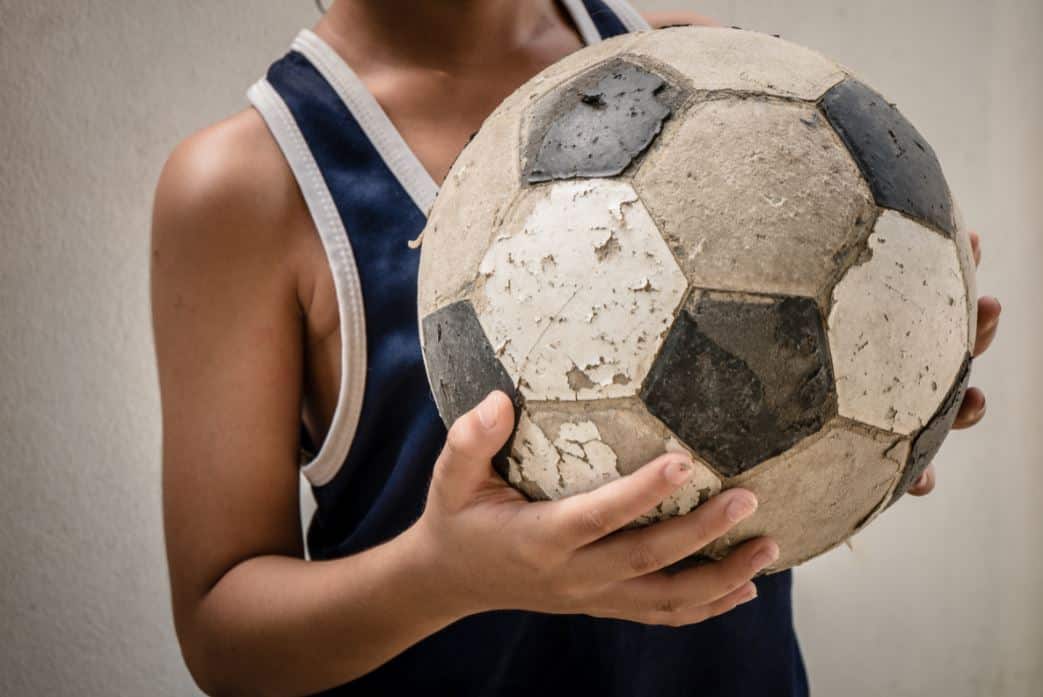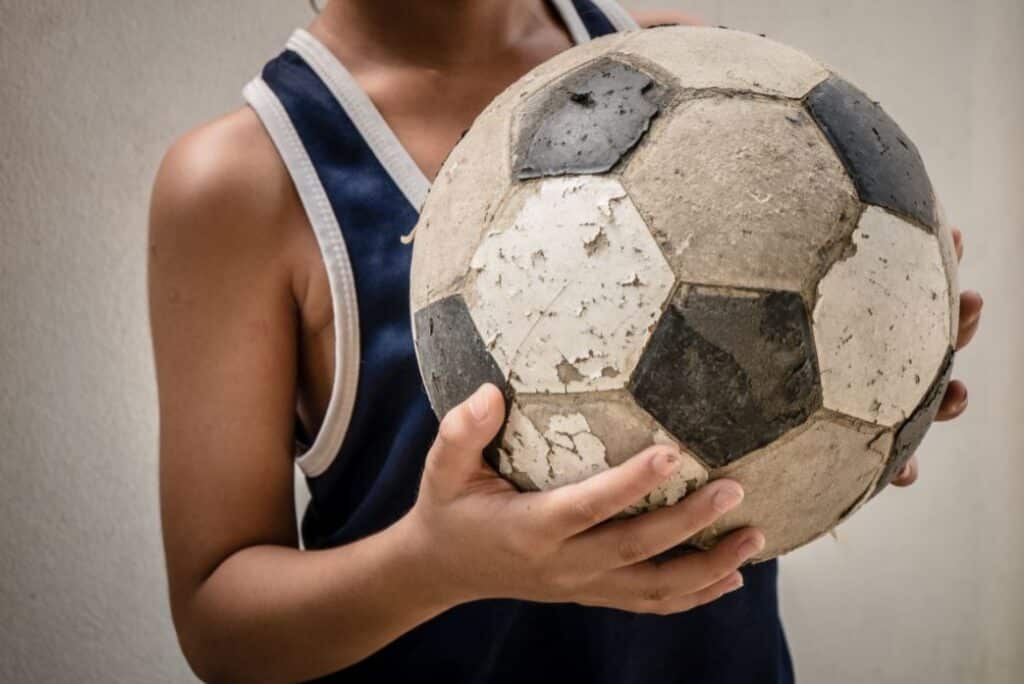Paul Tergat welcomes framework to safeguard children from trafficking in sport
Press statements | read time: 3 min
Published: 29 July 2020

July 30 – Working on the frontline to end human trafficking: UN World Day Against Trafficking in Persons
Every year, hundreds of thousands of children are trafficked for sport. To help clubs and sporting bodies prevent this from happening, anti-trafficking charity Mission 89 and GoodCorporation have developed a Framework on Safeguarding Children from Trafficking in sport .
Paul Tergat, former world marathon record holder and elite Kenyan long-distance runner supports its launch. “There is a general growing and serious problem where people are exploiting sports to engage in human trafficking, especially targeting children. Every effort to curb this vice deserves the support of all of us that love and protect the beauty and spirit of sports. As such, I welcome the launch of this noble and timely framework and laud the efforts of Mission 89 and GoodCorporation in seeking to combat this menace. I ask people, especially those with leadership and positions of influence to give their voices to this effort”.
Leading sports organisations committed to the fight against child trafficking in sport have also given their support for the principles outlined in the framework, including FIFA.
Child traffickers operate in the world’s poorest and most economically vulnerable communities. Masquerading as agents, often claiming affiliation to high-profile sports organisations, they extort payment from desperate families in the promise of future sporting glory. Many of those “recruited” never reach the organisations allegedly seeking their talents: most are abandoned in their own continent; others are smuggled abroad and left in cheap hotels without passports or money. One of those was Matthew Edafe, now an ambassador for Mission 89. See his story here.
The Framework draws on best practice models from international organisations such as UNICEF, FIFA and StreetFootballWorld. Practices and procedures that should be followed to manage the safe recruitment of child athletes from around the globe are outlined in this framework. Organisations can use it as a self-assessment tool or as the basis for an external review conducted by GoodCorporation and Mission 89. Following the framework both raises awareness of these issues and highlights the accountability of stakeholders for the protection of child athletes.
Commenting on the launch of the framework Baroness Lola Young, OBE said, “Human trafficking is a scourge on modern society affecting almost every business sector, in almost every country. On this, the United Nations’ World Day Against Trafficking in Persons, I welcome the launch of this initiative and support its aims to tackle the real and growing problem of chid trafficking for sport.”
Muaythai Boxing Pilot
The framework is currently being piloted by the International Federation of Muaythai Associations an IOC recognised organisation.
Commenting on the framework, Stephan Fox, Secretary General of the International Federation of Muaythai Associations (IFMA) and President of the Alliance of Recognised Members of Sport (AIMS) said, “The trafficking of children and talented young athletes in the name sport is an abomination. At IFMA we take our child protection and safeguarding responsibilities very seriously. We recognise our duty, or rather our responsibility, to ensure that all our Nak Muays (athletes) are properly protected.
“We have clear safeguarding policies and procedures in place to ensure an equal protection over all our stakeholders with no discrimination or separation in terms of race, religion, ability, sexual orientation or others. We are one family. Following the principles of this framework will enable us to further ensure the highest standards of practice are in place and to take a lead in this important area for all sports.”
Commenting on the launch of the framework, Lerina Bright, director of Mission 89 said, “Sports organisations are increasingly aware of the dangers of child trafficking. This framework has been developed to enable clubs, federations and sports governing bodies to take proactive steps to mitigate the chance of young athletes being recruited into their sport through child trafficking. It has been well received by leading international sports organisations and we are confident that it will become a vital tool in the prevention of child trafficking in sport”.
Working on the frontline to end human trafficking: UN World Day Against Trafficking in Persons – July 30
The 2020 theme for the World Day Against Trafficking in Persons is focusing on those who identify, support and challenge trafficking. The launch of this framework chimes with these endeavours.
The exploitation of child athletes is an escalating challenge. This has been acknowledged by the United Nations and highlighted in the UN Special Rapporteur’s Playing it Safe Report. Speaking at the Children’s Rights Session at the UN Sporting Chance Forum in 2019, UN Special Rapporteur Maud de Boer-Buquicchio said, “Children are often transferred from one country to another and find themselves in an unknown setting, with an uncertain legal status, which binds them to their employer. They may be traded from club to club and forced to train intensively, under the threat of finding themselves undocumented, having their dreams crushed and with no resources.”
work with us
